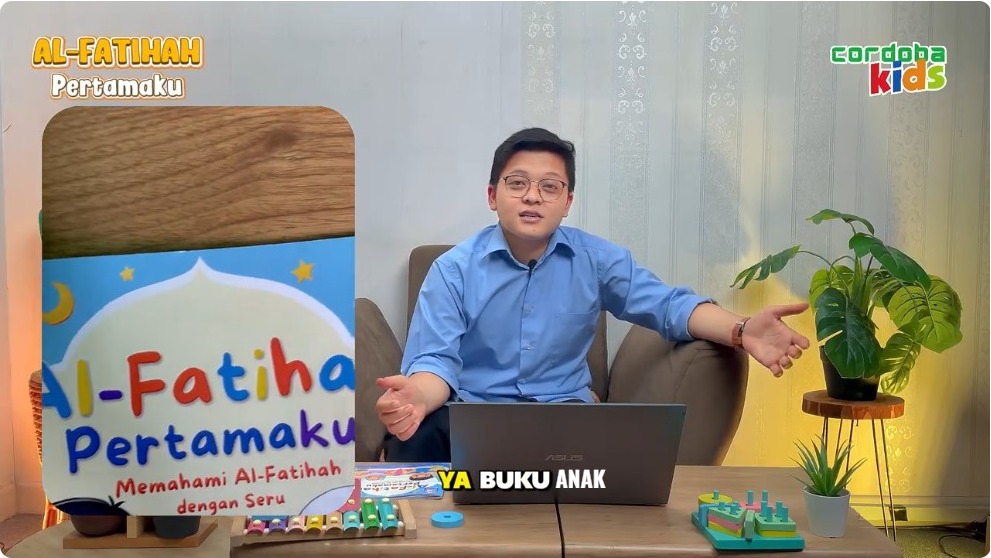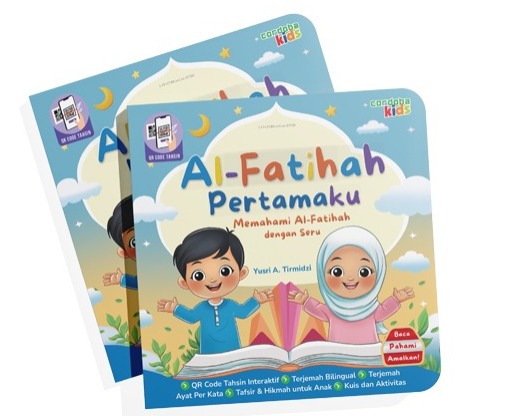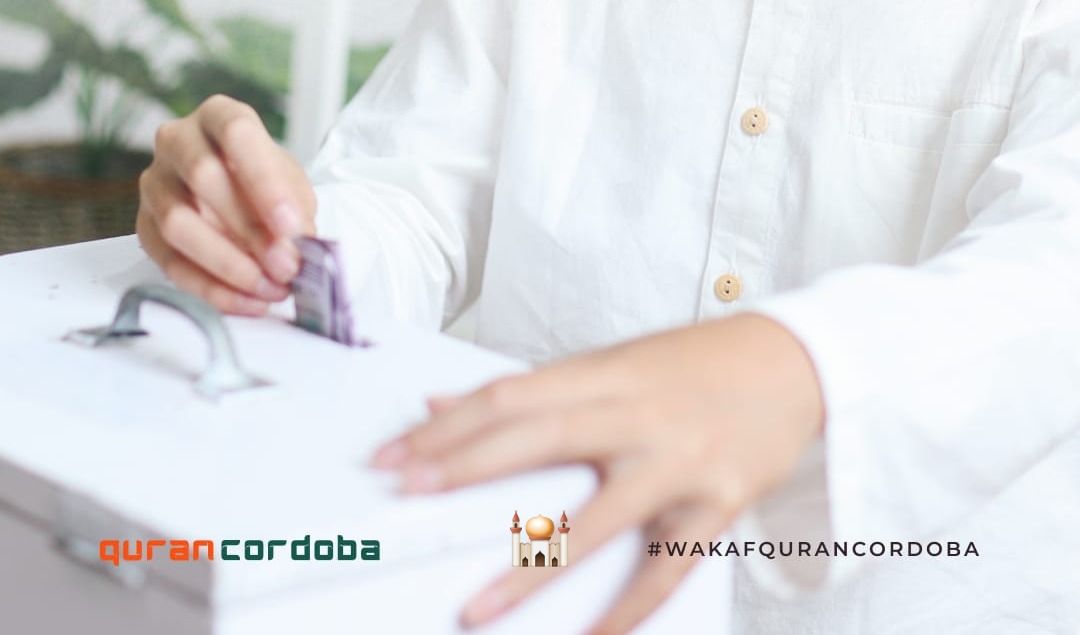Ayi Yusri A. Tirmidzi
Want to help your child understand the meaning of prayer from an early age? "My First Al-Fatihah" offers a simple, fun, and meaningful approach to learning to recite and absorb the Al-Fatihah. Get the book now to make your child's prayer more lively, reverent, and meaningful.

Kordoba Cordoba - Surah Al-Fatihah is not just a prayer opening reading. She is the "mother" of the Qur'an ( Umm al-Kitab ), as well as the core of all the contents of revelation. Ibn Kathir in his Tafsir al-Qur'an al-'Adzhim emphasized that the entire meaning of the Al-Qur'an can be returned to Al-Fatihah: monotheism, Shari'a, promises, threats, prayers and guidance.
Therefore, making children familiar with Al-Fatihah from an early age is not just a matter of memorization, but also instilling a spiritual foundation that will shape their Islamic character throughout their lives.
Teaching Al-Fatihah means teaching children how to recognize Allah: as the merciful Lord and the Master of the Day of Judgment. From there, they learn to recognize themselves as weak servants, unable to escape His help.
This is education that does not just train the tongue, but instills theological and ethical awareness from an early age. As written by Imam Ar-Razi in Mafatih al-Ghayb , every verse of Al-Fatihah contains the main principles of religion which, if understood correctly, will become the compass of a Muslim's life throughout his life.
Furthermore, Al-Fatihah also instills healthy prayer patterns for children: praising before asking, acknowledging the greatness of Allah before asking for guidance. This pattern is not only an etiquette for praying, but also trains children's psychology to grow with an attitude of gratitude, humility and full of hope.
Contemporary psychologists call this positive religious coping , a strategy for facing life by viewing God as a source of love and guidance. Therefore, children accustomed to reciting Al-Fatihah will have a strong mental and spiritual foundation when facing life's challenges.
Developmental psychology refers to the ages 0–12 as the "golden age," or the golden period for character formation. Western psychologist Jean Piaget explained that at this age, children are in the pre-operational to concrete operational . They learn by imitation, understanding symbols, and connecting words with concrete meanings.
So, when a child is taught to recite "Ar-Raḥmānir-Raḥīm" while being explained that Allah is the Most Merciful, he is not simply memorizing, but also instilling the concept of compassion in his soul. This is what Erik Erikson called basic trust —a fundamental sense of trust in the world and God that will later influence his mental health.
From an Islamic psychological perspective, this aligns with al-Ghazali's view in Ihya' Ulumiddin , which emphasizes the importance of ta'dib (practicing good manners) from an early age, as a child's heart is like a vacant lot ready to be planted. Similarly, Malik Badri, a contemporary Muslim psychologist, asserts that introducing children to the verses of the Quran from an early age is a form of spiritual nurturing —nurturing the soul so that it grows with a healthy natural disposition.
Thus, teaching Al-Fatihah is not just a transfer of knowledge, but soul therapy that connects a child's nature with his Rabb.
In other words, learning Al-Fatihah from a young age not only prepares children for prayer, but also builds a healthy psychological foundation: gratitude, self-confidence, and a sense of direction in life.
Al-Fatihah is not just an introduction to prayer, but a road map of a Muslim's life. Imam Fakhruddin ar-Razi in Mafatih al-Ghayb calls it a "miracle of meaning" because these seven short verses succeed in summarizing the essence of the cosmos and human law at once.
Each line contains guidance: from gratitude for Allah's blessings, acknowledgment of His mercy, awareness of the Day of Judgment, to prayers for steadfastness on the straight path.
Sheikh Wahbah al-Zuhayli in at-Tafsir al-Munir emphasized that Al-Fatihah is the foundation of ethics. He taught how humans should be civilized towards their God and how to organize their life with full moral awareness. In fact, contemporary scholars such as Prof. Quraish Shihab added that prayer without appreciation of Al-Fatihah is like a body without a soul. The reading is there, the movement is there, but the meaning is empty.
Therefore, teaching Al-Fatihah from an early age is not just a memorization exercise, but a spiritual investment so that our children's prayers will truly be alive, touch their souls, and shape their character.
Unfortunately, quite a few of us—adults—complain that our prayers are bland, feeling like just routine. The tongue speaks, the body moves, but the heart remains empty. Imam al-Qusyairi in Lathaif al-Isdalam once reminded,
“Whoever reads Al-Fatihah without reflecting on its meaning is only counting letters, not opening the door of mercy.” Therefore, this is where the importance of instilling understanding from childhood lies.
If children are trained to meditate on the meaning of each verse from an early age, their prayers will grow into a spiritual garden. They will realize that "Māliki yaumiddīn" is not merely a recitation, but an awareness of the Day of Reckoning. That "Iyyāka na'budu wa iyyāka nasta'īn" is a declaration of love and total dependence on Allah SWT.
In this way, Al-Fatihah is not merely recited, but lived. It becomes a guide that guides one's steps, a direction that keeps the heart straight, and a prayer that always lives in the soul.
Get it here to make children's prayers more lively, solemn and meaningful.


